#brain training
Text
All it takes is a little nudge
You're sitting at your desk in the office in the middle of boringly normal workday when you go to slightly adjust your posture
In doing so your clothes just barely brush against your pussy
At first you think nothing of it, but the fuse has already been lit
A few minutes later you feel a little fidgety and readjust, another slight brush
You fidget again and again and you wonder where this feeling of restlessness is coming from
You readjust your posture again to get back in the groove but all it does is give your pussy another gentle caress
With the change in posture you finally think you're fine and safe, and then you realize that your pussy has started to tingle and is a little wet
Almost without realizing it you start readjusting again but this time you don't stop and instead start moving back and forth slightly to rub yourself just a little
Anyway, it's not like a small edge would hurt, right?
This sates you for a short while but you soon find yourself slowly making bigger and bigger movements against your pussy
Before long you're having to bite your lip to stop your naughty sounds from being heard as instead of this rubbing taking the edge off it's instead making you hornier and more needy
You take one look around your desk to see if anyone is around, and after seeing the coast is clear, you bring your hand down to give your cunt something proper to edge itself with
The lids of your eyes start drooping as you begin to lose yourself in the pleasure, you unknowingly lose a bit of your control as your whimpering starts escaping the quickly failing resolve to restrain the sounds of your arousal
Quickly bringing yourself to the edge of orgasm, it's just a few more moments and you'll get the pleasurable release you've been craving. You feel yourself get so close, getting right to edge. You know this will feel so good. Just a few more humps on your hand and the sweet release is yours. Just as you begin to start tipping over the edge...
A meeting reminder dings and snaps you out of your bliss. You quickly pull your hand away and smooth over your clothes before getting up and walking into a conference room
#cicle fantasy#my first story#please give feedback#brain training#mind conditioning#good slvt#edging kink#edging and denial#pleasure conditioning#corruption kink#mind corruption
114 notes
·
View notes
Text
I have what some people would call "too many" copies of brain training

I find this perspective offensive and will be excommunicating with these people immediately
5 notes
·
View notes
Text
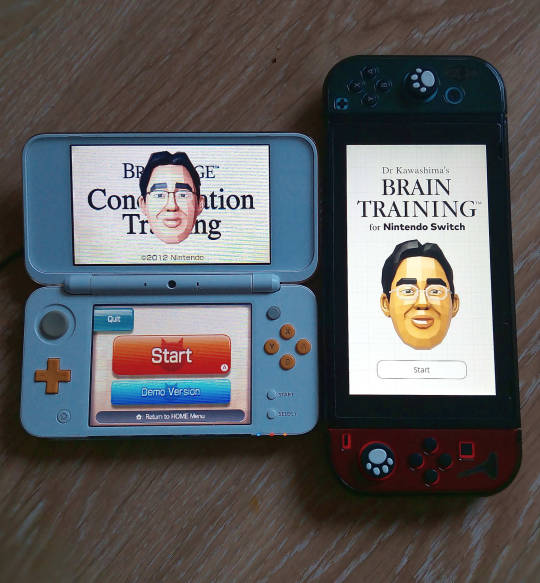
Хорошей игры много не бывает.
#русский tumblr#русский блог#русский пост#русский текст#русский тамблер#nintendo switch#switch#gaming#video games#nintendo#3ds#nintendo 3ds#3ds games#nintendo 2ds#2ds#brain training
11 notes
·
View notes
Text
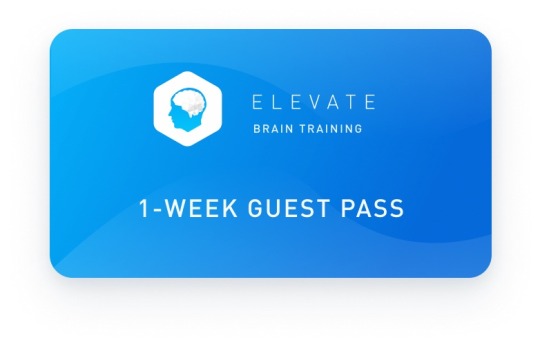
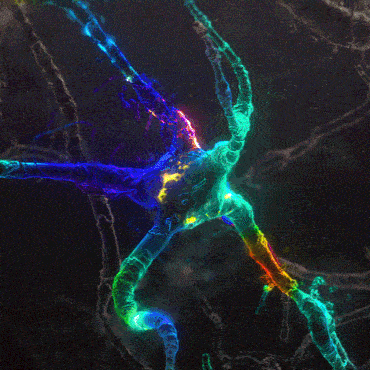
5 notes
·
View notes
Text

Thanks to you, dr Kawashima for sharing your knowledge about prefrontal cortex
4 notes
·
View notes
Text
休日用ドローイング。右脳トレーニングのエクササイズです。

Totally personal drawing on weekends.






3 notes
·
View notes
Text
Level Up Your Mind with Brain Games
Are you looking for the best relaxing games? CogniFit offers science-backed Brain Games designed by neuroscientists to improve memory, concentration, problem-solving, and more. Their fun, personalized training adjusts difficulty as you progress, keeping your mind challenged. See detailed tracking of your cognitive improvements across skills like mental agility, critical thinking, and processing speed. Just 15 minutes per day can yield noticeable results in as little as 4 weeks. Let us put your brain to the test! To know more details visit our website.
#cool math games#math#brain training#brain games#games#cognitive test#math games#memory test#neuropsychological testing#video games
2 notes
·
View notes
Text
Effects of ADHD on adulthood
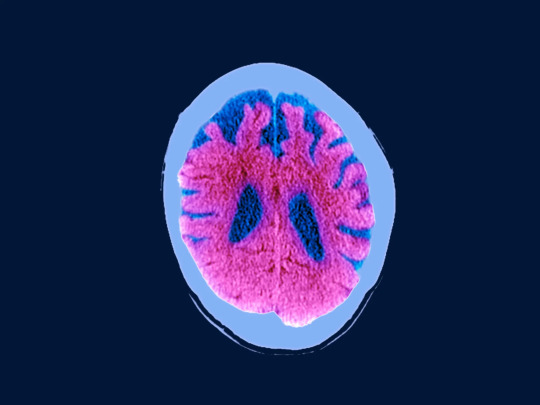
Many folks with ADHD aren't even aware of their condition; they only know that simple chores can be difficult for them. Adults with ADHD may struggle with priorities and concentration, which can result in missed deadlines, canceled meetings, and neglected social activities. The inability to restrain impulses can cause a variety of behaviors, such as impatience while driving in traffic or in line, as well as mood swings and angry outbursts.
A long variety of diseases, including ODD, conduct disorder, depression, dyspraxia, epilepsy, Tourette syndrome, and many others, are coupled with ADHD problems. Don't disregard symptoms. Visit a doctor if you notice any, seek their advice, and then move on to receive the proper care.
#Cognitive Test#Mindfulness#ADHD#ADHD Test#Brain Training#adhd#adhd test#brain science#cognitive test#mindfulness#sharp mind#brainstorm#brain exercise#cognifit
11 notes
·
View notes
Text
Keeping your brain healthy is not all about Sudoku, Wordle or crossword puzzles. Those can have cognitive benefits, but you are mostly exercising with the knowledge and skills you already have.
What does make significantly new connections in the brain is learning new skills and information. And the process should be challenging: SuperAgers embrace — and sometimes crave — that feeling of frustration when they learn something outside of their expertise.
[...]
You can cross-train your brain by mixing mental and physical learning activities. Get out your calendar and plan different types of activities using this plan:
Day 1: Learn something mentally stimulating, such as listening to a podcast or taking an online course.
Day 2: Do something that requires learning through movement, such as a new sport, dance or yoga pose.
Day 3: Be social. Grab coffee with a friend or go to a dinner party. Yes, social interaction is a form of learning that has been associated with staving off dementia.
6 notes
·
View notes
Text
I just managed to crack my first ever X wing sudoku without any help or hints, waheey
#it's nice to be making progress#esp with the slightly more advanced techniques that i thought i would Never get the hang of#sudoku#brain training
5 notes
·
View notes
Text
Methods for Rewiring the Brain for Healing
#rewiring the anxious brain#brain#brain healing#rewire your brain#rewire the anxious brain#rewiring the brain#healing#brain health#how to rewire the brain#brain training#neuroplasticity how to rewire your brain#the scientific method to rewire your brain and learn everything#brain rewire#energy healing#manthanhub brain rewire#depression healing#natural remedies for anxiety#creative outlet for adhd#tips for adhd#cbt for anxiety#brain training things
8 notes
·
View notes
Note
You’re confusing my brain 🙈 I thought this edging habit would take longer for me to get back into but you’re making me want it more
Well good thing you don’t need your brain to edge!
Wanting to edge is very good
Making edging a habit is a good thing to do
You should edge yourself regularly to make it a habit
#ask answered#edging kink#edging and denial#brain training#corruption kink#mind conditioning#shootingstarr0#pleasure conditioning
83 notes
·
View notes
Text
to those who were wondering why I have so many DSs and copies of Brain Training
4 notes
·
View notes
Text
2 notes
·
View notes
Text
Easy and Fun Brain Training Activities for Singapore Kids

Looking to give your child's brain a boost? Look no further! In this post, we'll explore some simple yet effective brain training activities that you can easily incorporate into your routine. Whether you're attending baby classes or searching for an enrichment centre Singapore, these activities are perfect for enhancing cognitive development in your little one.
1. Puzzle Play:
Introduce your child to age-appropriate puzzles. From simple wooden puzzles to more complex jigsaw puzzles, they provide excellent stimulation for problem-solving skills and spatial awareness.
2. Memory Games:
Play memory card games with your child, where they have to match pairs of cards. This not only improves memory retention but also enhances concentration and focus.
3. Storytime Adventures:
Reading to your child is not only a bonding activity but also a great way to stimulate their imagination and language skills. Encourage them to predict what happens next or ask questions about the story.
4. Music and Movement:
Engage your child in singing songs and dancing to music. Music has been shown to enhance cognitive abilities, and movement activities help with coordination and motor skills development.
5. Nature Walks:
Take your child on nature walks and encourage them to observe their surroundings. Point out different plants, animals, and objects, and discuss their characteristics. This helps with sensory development and fosters curiosity.
Conclusion:
Incorporating brain training activities into your child's daily routine doesn't have to be complicated or time-consuming. By integrating these fun and easy activities into your day, you can help support your child's cognitive development and set them up for success in the future.
0 notes
Text
Think Your Way to a Better Life
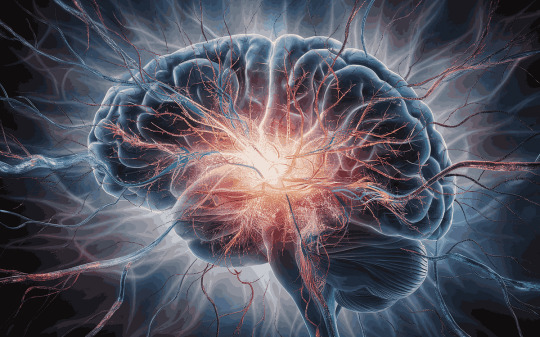
Introduction to Brain Rewiring
The power of mindset encompasses the beliefs, attitudes, and perspectives that shape individuals’ perceptions and responses to life’s challenges. A growth mindset, characterized by resilience and a belief in one’s ability to learn and grow, fosters perseverance and achievement. In contrast, a fixed mindset, driven by fear of failure and limitations, can hinder personal development. By cultivating a growth-oriented mindset through self-awareness and intentional practice, individuals can unlock their potential for success and fulfilment in various aspects of life.
The Science Behind Brain Rewiring
Neuroplasticity refers to the brain’s ability to reorganize and adapt by forming new neural connections throughout life. This phenomenon underlies learning, memory, and recovery from injury. Neural networks are intricate systems of interconnected neurons that communicate to process information and govern various functions. Through experiences, learning, and repetitive actions, neural networks can strengthen or weaken, shaping behaviour and cognition. Understanding neuroplasticity highlights the brain’s capacity for change, offering hope for rehabilitation therapies and strategies to optimize learning and cognitive function, particularly in the face of injury, ageing, or neurological conditions.
Principles of Cognitive Behavioural Therapy
Restructuring negative thought patterns involves identifying and challenging irrational or harmful thoughts to promote healthier cognitive patterns. This cognitive-behavioral technique aims to replace distorted beliefs with more realistic and positive interpretations. Practitioners learn to recognize cognitive distortions such as catastrophizing or black-and-white thinking, and then reframe them through evidence-based strategies like cognitive restructuring or thought records. By cultivating awareness and actively modifying negative thought processes, individuals can improve emotional well-being, reduce stress, and enhance resilience. This approach is widely used in therapy and self-help interventions to empower individuals in managing their mental health and promoting positive thinking habits.
Harnessing the Power of Positive Thinking
Affirmations and self-talk strategies are cognitive techniques used to cultivate positive thinking patterns and bolster self-esteem. Affirmations involve repeating positive statements about oneself or desired outcomes to reinforce beliefs and attitudes. Self-talk strategies focus on adopting supportive and constructive inner dialogue, challenging negative thoughts, and offering encouragement and reassurance. By incorporating these practices into daily routines, individuals can reshape their self-perception, boost confidence, and foster resilience in the face of challenges. While research on their efficacy varies, many find these techniques helpful in promoting a more optimistic and empowered mindset.
Mindfulness Meditation for Brain Rewiring
Attention regulation and emotional control are cognitive skills vital for managing thoughts, feelings, and behaviours. Attention regulation involves directing and sustaining focus on relevant stimuli while filtering out distractions. Emotional control refers to the ability to regulate and modulate emotional responses in various situations. These skills are closely linked, as attentional focus influences emotional processing and vice versa. Effective attention regulation and emotional control support adaptive functioning, enhancing decision-making, interpersonal relationships, and overall well-being. Practices such as mindfulness meditation and cognitive-behavioral techniques can help individuals develop and strengthen these essential cognitive abilities.
Visualisation Techniques for Cognitive Transformation

Gratitude Practices and Neurological Benefits
The impact on brain structure and function refers to how various factors, such as experiences, behaviours, and interventions, can influence the anatomy and activity of the brain. This encompasses neuroplasticity, the brain’s ability to reorganize and form new neural connections in response to stimuli. Positive influences like education, exercise, and mindfulness practices have been linked to enhanced cognitive function and structural changes in the brain, such as increased grey matter volume. Conversely, negative factors like stress or substance abuse can impair brain function and lead to structural alterations, highlighting the dynamic relationship between the mind and brain.
Physical Exercise and Cognitive Enhancement
Aerobic exercise has been shown to positively impact cognitive flexibility, the ability to switch between different tasks or concepts efficiently. Regular aerobic exercise, such as running, swimming, or cycling, promotes neuroplasticity, leading to structural and functional changes in the brain. Studies indicate that aerobic exercise can enhance cognitive flexibility by increasing blood flow to the brain, promoting the growth of new neurons, and improving neural connectivity. These cognitive benefits are particularly pronounced in older adults, suggesting that aerobic exercise may serve as a valuable strategy for maintaining cognitive function and mitigating age-related cognitive decline.
Sleep Hygiene and Brain Health
Restorative sleep plays a crucial role in supporting optimal cognitive function. During sleep, the brain undergoes essential processes such as memory consolidation, neural repair, and removal of toxins accumulated during waking hours. Adequate sleep duration and quality are associated with improved attention, concentration, problem-solving skills, and overall cognitive performance. Conversely, sleep deprivation or poor sleep quality can impair cognitive function, leading to deficits in memory, decision-making, and emotional regulation. Prioritizing restorative sleep habits, including maintaining a consistent sleep schedule and creating a conducive sleep environment, is essential for preserving cognitive health and promoting optimal brain function throughout life.
Social Connection and Emotional Well-Being
Supportive relationships contribute significantly to brain resilience, the ability to adapt and recover from challenges or adversity. Strong social connections provide emotional support, reduce stress, and promote positive mental health, all of which are crucial for maintaining brain resilience. Research suggests that individuals with robust social networks exhibit better cognitive function, lower risk of cognitive decline, and enhanced overall well-being. Social interaction stimulates brain activity, fosters neuroplasticity, and buffers against the negative effects of stress on brain health. Cultivating supportive relationships can thus play a vital role in promoting brain resilience and preserving cognitive function throughout life.
Lifelong Learning and Intellectual Stimulation
Continuous learning is essential for maintaining cognitive vitality, the ability to sustain optimal brain function and adapt to new challenges as we age. Engaging in intellectually stimulating activities such as reading, learning a new language, or acquiring new skills stimulates neural activity, promotes neuroplasticity, and enhances cognitive reserve. Research suggests that lifelong learning is associated with better cognitive outcomes, including improved memory, attention, and problem-solving skills, as well as a reduced risk of cognitive decline and dementia. Embracing a mindset of curiosity and seeking out new learning opportunities can contribute significantly to preserving cognitive vitality and overall brain health.
Conclusion
Realizing the potential for positive change involves acknowledging the capacity for personal growth and transformation. By embracing change, individuals can adopt proactive strategies to address challenges, pursue opportunities, and enhance well-being. This mindset emphasizes resilience, adaptability, and self-awareness, empowering individuals to navigate life’s complexities with confidence and purpose. Cultivating a growth-oriented mindset fosters optimism, motivation, and a sense of agency, facilitating the pursuit of goals and aspirations. Through intentional efforts to harness one’s potential, individuals can cultivate a fulfilling and meaningful life characterized by continuous growth, resilience, and positive change.
FAQs
How long does it take to rewire your brain for positive thinking?
Research suggests that forming new neural pathways and ingrained positive thinking habits can take anywhere from a few weeks to several months, although the exact timeline varies from person to person.
2. Can neuroplasticity help overcome past traumas?
Yes, neuroplasticity enables our brains to rewire and heal from past traumas by forming new neural connections and processing emotions in healthier ways.
3. Is it possible to rewire your brain at any age?
Absolutely! Neuroplasticity occurs throughout our lives, meaning it’s never too late to start rewiring your brain and making positive changes.
4. How can I incorporate mindfulness into my daily life?
Begin by setting aside a few minutes each day for mindfulness practices such as meditation, deep breathing, or simply paying attention to your senses during everyday activities.
5. What are some simple self-care practices I can implement today?
You can start incorporating simple yet effective self-care practices into your daily routine, such as taking a short walk in nature, enjoying a hot cup of tea, practicing gratitude journaling, or indulging in a favorite hobby.
0 notes